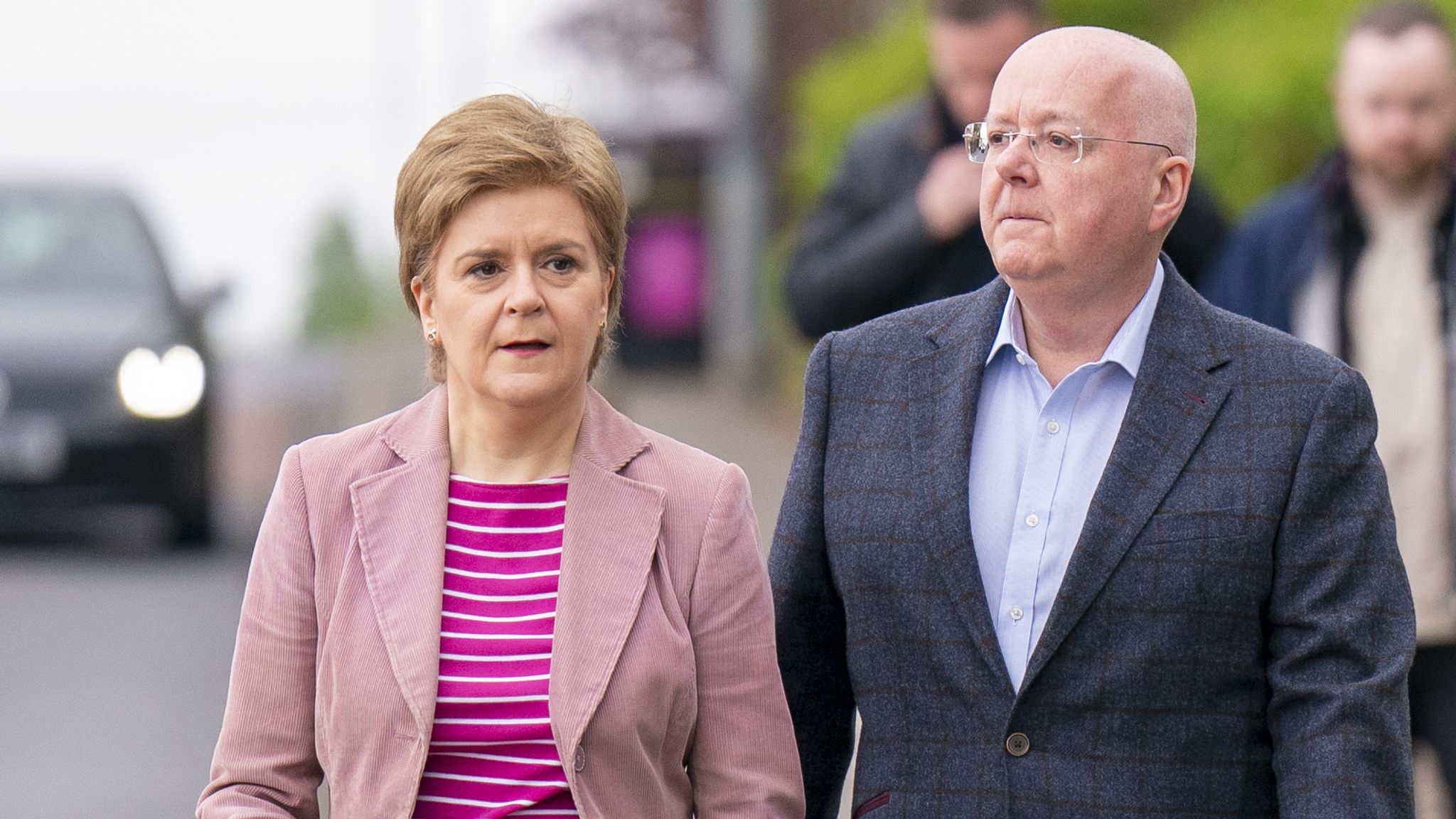In a surprise announcement on Tuesday, Peter Murrell, the husband of Scotland’s First Minister Nicola Sturgeon, stepped down as the Chief Executive of the Scottish National Party (SNP) after 13 years in the role. Murrell’s resignation comes amid allegations of misconduct and concerns about his handling of the party’s internal affairs.

Why Did Peter Murrell Resign?
The controversy began when a series of messages between Peter Murrell and other senior SNP figures were leaked to the media. In the messages, Murrell appeared to suggest that he wanted to put pressure on the police to investigate former First Minister Alex Salmond, who was acquitted of sexual assault charges last year. The messages, which were sent in 2018, also raised questions about Murrell’s involvement in the SNP’s handling of the Salmond case. Salmond himself has accused the party of a conspiracy against him and has alleged that senior figures, including Sturgeon, were involved in a plot to destroy his reputation.
Accused of Wrongdoings
Peter Murrell has denied any wrongdoing, but his position as Chief Executive of the SNP had become increasingly untenable in recent weeks. On Tuesday, he issued a statement announcing his resignation, saying that he had “decided that it is the right time for me to step down as Chief Executive of the SNP.” The resignation is a blow to Sturgeon, who has been married to Peter Murrell for over 30 years and is widely seen as his political protege. Sturgeon herself has faced criticism over her handling of the Salmond case and has been accused of misleading parliament about her knowledge of the allegations against him.
SNP Failing As a Party
The SNP, which is currently in power in Scotland, has also been criticized for its handling of the pandemic, with some accusing the party of prioritizing independence over public health. Murrell’s resignation is likely to further damage the party’s reputation and could make it harder for Sturgeon to push for a second independence referendum. In his statement, Peter Murrell said that he was “proud of what we have achieved as a party over the last 13 years.” He also thanked party members for their support and said that he was confident that the SNP would continue to “go from strength to strength.”

Will SNP Hold Re-Elections?
The resignation of Peter Murrell highlights the growing divisions within the SNP and the challenges that Sturgeon faces as she tries to keep her party united and focused on its goal of independence. With Murrell gone, Sturgeon will need to find a new Chief Executive who can navigate the complex world of Scottish politics and help her to push for another referendum on independence. The timing of Murrell’s resignation is also significant, coming just a few weeks before the Scottish parliamentary elections on May 6th. The SNP is hoping to win a majority in the elections, which would give Sturgeon a strong mandate to push for another referendum on independence. However, the party’s recent controversies, including the Salmond case and Murrell’s resignation, could damage its chances of success. The opposition parties are likely to use these issues to attack the SNP and question its fitness to govern Scotland.
New Challenges for SNP
In conclusion, Peter Murrell’s resignation as Chief Executive of the SNP is a significant development in Scottish politics. It highlights the challenges facing the SNP as it seeks to push for independence and maintain its position as the dominant political force in Scotland. With Peter Murrell gone, Sturgeon will need to find a new Chief Executive who can help her to navigate the complex world of Scottish politics and push for another referendum on independence. The Scottish parliamentary elections in May will be a crucial test of the SNP’s popularity and its ability to govern effectively.
